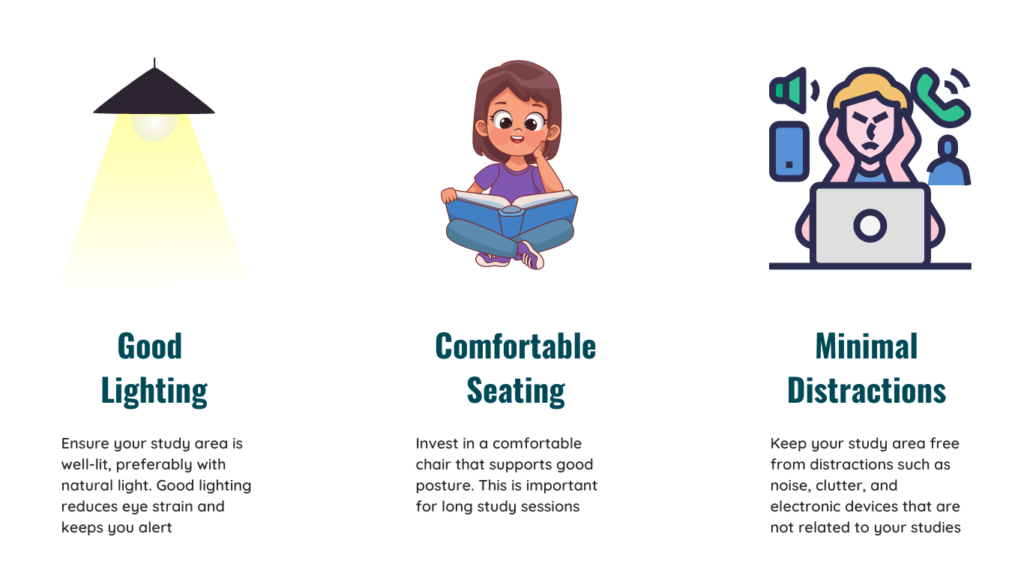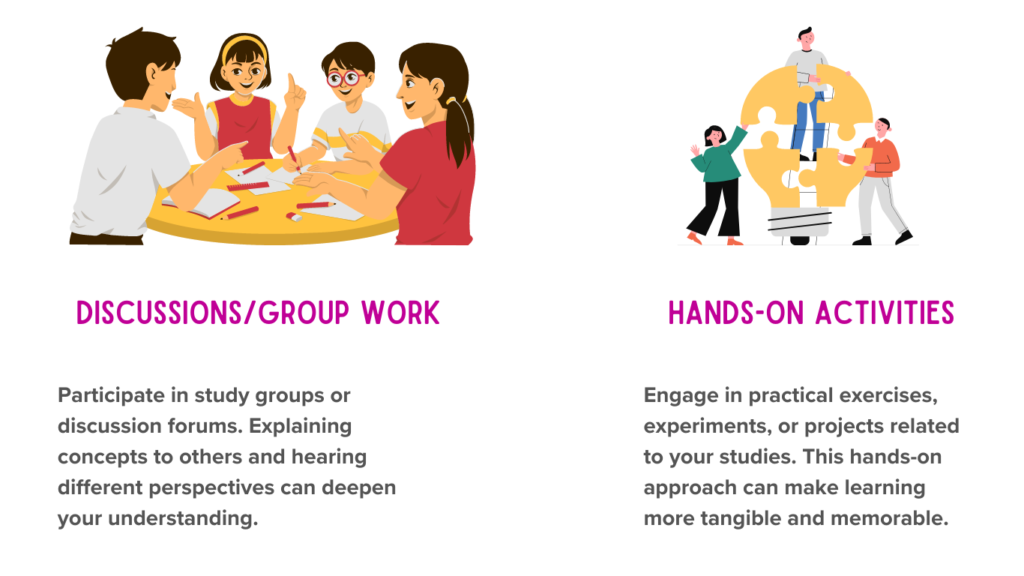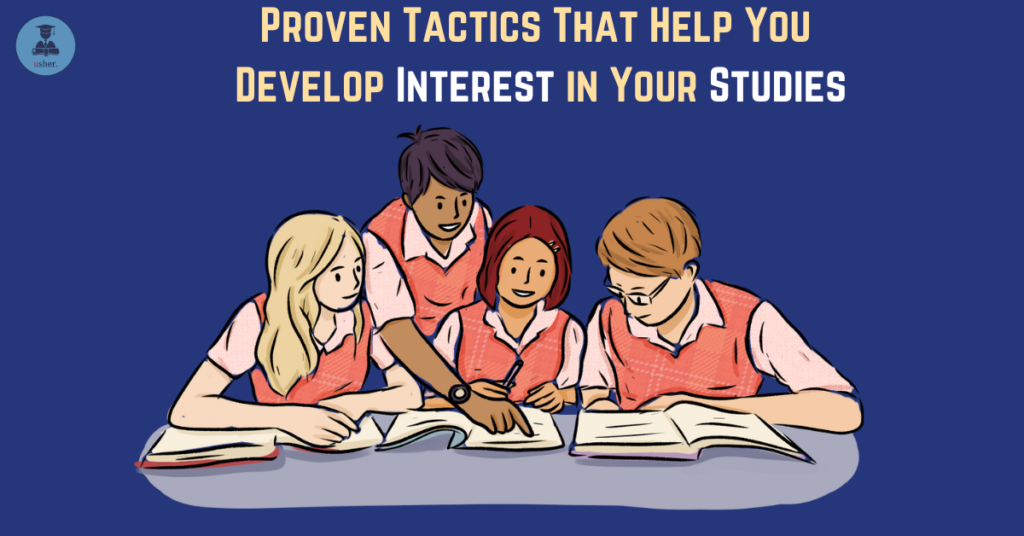Have you ever felt like studying is a chore, something you have to drag yourself through? If so, you’re not alone. Many students struggle with finding interest in their studies, but this doesn’t have to be the case. Imagine being genuinely excited about learning, looking forward to your study sessions, and feeling fulfilled as you make progress. This blog aims to help you transform your approach to studying by developing a genuine interest in your academic pursuits.
Developing an interest in studies is crucial not just for academic success but for overall personal growth. When you are genuinely interested in what you are studying, you are more likely to retain information, perform better on exams, and carry that passion into your future career. This blog will cover practical strategies and insights to help you discover and nurture your interest in studying, making learning an enjoyable and rewarding experience.
To help you navigate better, we have divided the article into seven sections that help you understand the importance of developing a genuine interest in your academic pursuits. You can click on the desired section to directly go to that point.
Section 1: Understanding the Importance of Interest in Studies
Section 2: Self-Assessment and Goal Setting
Section 3: Creating a Conducive Learning Environment
Section 4: Active Learning Techniques
Section 5: Building a Support System
Section 6: Making Learning Fun
Section 7: Staying Motivated
Section 1:
Understanding the Importance of Interest in Studies
The Role of Interest in Learning
Interest is a powerful motivator. It drives engagement, builds curiosity, and enhances the learning process. When you are interested in a subject, you are more likely to invest time and effort into understanding it deeply.
Research shows that students who are interested in their studies tend to achieve higher grades and exhibit better overall academic performance. Interest not only boosts motivation but also improves memory retention and comprehension.
For instance, a study by Harackiewicz and Hulleman (2010) found that interest in a subject can lead to a greater desire to learn and achieve, making students more resilient in the face of academic challenges.
When you are genuinely curious about a topic, you are more likely to explore it further, ask questions, and seek additional resources, all of which contribute to a richer learning experience.
Long-Term Benefits
Developing an interest in studying can have long-lasting benefits beyond the classroom.
A sustained passion for learning can lead to better career opportunities, as employers often seek individuals who are knowledgeable and enthusiastic about their field.
Moreover, a love for learning can build continuous personal growth, helping you adapt to new challenges and stay ahead in an ever-changing world.
Interest in studies also promotes a growth mindset, where you see challenges as opportunities to learn and improve rather than as insurmountable obstacles. This mindset is crucial for personal and professional development, enabling you to pursue lifelong learning and achieve your goals.

Section 2:
Self-Assessment and Goal Setting
Identifying Personal Interests
The first step in developing an interest in studies is to identify what subjects or topics naturally intrigue you. Self-assessment is a powerful tool in this process. Take some time to reflect on your past experiences and think about the subjects that have sparked your curiosity. Consider what activities you enjoy and which topics you find yourself naturally drawn to.
There are various tools and methods available to help you with this self-assessment. Interest inventories and personality tests, such as the Holland Code (RIASEC) or the Myers-Briggs Type Indicator (MBTI), can provide valuable insights into your preferences and strengths. These assessments can guide you toward subjects that align with your natural interests and talents, making it easier to develop a genuine passion for your studies.
You can find more about these assessments and other such personality assessments on our detailed blog – Types of Personality Assessments for Students
Setting Realistic Goals
Once you have identified your interests, the next step is to set specific, achievable goals. Goal setting is essential for maintaining motivation and tracking your progress.
Start by setting short-term goals that are realistic and attainable.
For example, if you are interested in a particular subject, aim to read a certain number of articles or complete a specific project related to that topic within a set timeframe.
Long-term goals are equally important. These goals should be ambitious yet achievable, providing you with a sense of direction and purpose.
For instance, if you aspire to become an expert in a particular field, set long-term goals such as completing advanced courses, attending relevant workshops, or obtaining a degree or certification in that area.
By setting and achieving both short-term and long-term goals, you can create a sense of accomplishment and momentum, further fueling your interest in studies.

Section 3:
Creating a Conducive Learning Environment
Organized Study Space
A well-organized study space is crucial for maintaining focus and productivity. Your study environment should be clean, clutter-free, and dedicated solely to learning. This helps signal to your brain that it’s time to focus and reduces the likelihood of distractions.
Consider the following tips for setting up an effective study space:

Time Management
Effective time management is key to developing an interest in studies. When you manage your time well, you can allocate specific periods for focused study, ensuring that you make steady progress without feeling overwhelmed.
Here are some time management strategies to consider:
- Pomodoro Technique: Break your study sessions into 25-minute intervals (Pomodoros) followed by a 5-minute break. After four Pomodoros, take a longer break of 15-30 minutes. This technique helps maintain focus and prevents burnout.
- Time Blocking: Allocate specific blocks of time for different subjects or tasks. This helps you stay organized and ensures that you devote sufficient time to each area of study.
- Balanced Schedule: Balance your study time with breaks and leisure activities. Overworking can lead to burnout, so it’s important to give yourself time to relax and recharge.
Create a Routine
Establishing a consistent study routine can help you stay on track and make the most of your time.
Think about designating a certain period of time each day for studying, and try your best to stick to it. This will facilitate starting and help rewire your brain to link that time of day with learning.

Section 4:
Active Learning Techniques
Interactive Learning
Active learning involves engaging with the material in a dynamic way, rather than passively reading or listening. This approach can make studying more enjoyable and effective.
Consider the following interactive learning techniques:

Engage in Classroom Discussions
Along with active learning, engagement in the classroom is also a way that being involved in class can encourage students’ interest in their studies. Students show a greater interest in learning when they contribute to class discussions, pose questions, and share their thoughts. They also get the chance to learn from the viewpoints and experiences of their peers and get any questions or misconceptions cleared up.
Try to Relate the Topics
One of the best ways to spark interest in studies is to make connections to the subjects being covered in class. Learning becomes more interesting and meaningful when students can relate what they’re learning to their own experiences and lives. When learning history, for instance, pupils could find it more engaging to study about people or events that influenced their culture or community.
In a similar vein, students may be more engaged in scientific classes if they can relate the ideas they are learning to actual occurrences.
Technology and Learning
Leveraging technology can enhance your learning experience and make it more engaging. There are numerous educational apps, online courses, and multimedia resources available that cater to various learning styles.
Here are some ways to incorporate technology into your studies:
- Educational Apps: Use apps that offer interactive lessons, quizzes, and flashcards. Popular options include Duolingo for language learning and Khan Academy for a wide range of subjects.
- Online Courses: Enroll in online courses or MOOCs (Massive Open Online Courses) offered by platforms like Coursera, edX, and Udacity. These courses often include video lectures, interactive assignments, and discussion forums.
- Multimedia Resources: Utilize videos, podcasts, and infographics to supplement your learning. These resources can provide different perspectives and make complex topics more accessible.

Section 5:
Building a Support System
Peer Support
Surrounding yourself with like-minded individuals who share your academic goals can provide motivation, encouragement, and accountability.
Here are some tips for building a strong support system:
- Study Groups: Join or form study groups with peers who are motivated and committed to their studies. Study groups can provide different perspectives, facilitate discussion, and make learning more social and enjoyable.
- Peer Collaboration: Collaborate with classmates on projects and assignments. Working together can help you learn from each other’s strengths and improve your understanding of the material.
Mentorship
Mentors can play a crucial role in building your interest in studies and guiding you toward your goals. A mentor can provide valuable advice, share their experiences, and help you navigate academic and career challenges.
Here are some steps to finding and working with a mentor:
- Identify Potential Mentors: Look for individuals who have expertise in your area of interest. This could be a teacher, professor, or professional in your desired field.
- Approach with Intent: When approaching a potential mentor, be clear about your goals and what you hope to gain from the mentorship. Show genuine interest and respect for their time and experience.
- Build a Relationship: Develop a strong, respectful relationship with your mentor. Be open to feedback, ask questions, and take their advice seriously.

Section 6:
Making Learning Fun
Gamification of Studies
Gamification involves incorporating game elements into your study routine to make learning more engaging and enjoyable. This can include point systems, rewards, and challenges.
Here are some ways to gamify your studies:
- Point Systems: Assign points to different tasks or study goals. Reward yourself with points for completing assignments, studying for a certain number of hours, or achieving good grades. Accumulate points to earn rewards, such as a treat or a break.
- Educational Games: Use educational games and apps that make learning fun. For example, Quizlet offers interactive flashcards and quizzes, while Kahoot! allows you to create and participate in educational quizzes.
Exploring Different Learning Styles
Understanding and leveraging your preferred learning style can make studying more effective and enjoyable. There are several learning styles, including visual, auditory, and kinesthetic.
Here are some tips for adapting your study techniques to suit your learning style:
- Visual Learners: Use diagrams, charts, and visual aids to understand and remember information. Create mind maps and use color coding to organize your notes.
- Auditory Learners: Listen to lectures, podcasts, and audiobooks. Participate in discussions and recite information aloud to reinforce learning.
- Kinesthetic Learners: Engage in hands-on activities and experiments. Use physical objects or models to understand concepts and take frequent breaks to move around while studying.

Section 7:
Staying Motivated
Celebrating Small Wins
Recognizing and celebrating your progress is essential for maintaining motivation. Celebrating small wins can boost your confidence and keep you motivated to achieve bigger goals.
Here are some ideas for celebrating your achievements:
- Milestone Rewards: Set milestones for your study goals and reward yourself when you achieve them. For example, treat yourself to your favorite snack after completing a study session or take a relaxing break after finishing a project.
- Positive Reinforcement: Use positive reinforcement to stay motivated. Remind yourself of your achievements and the progress you have made. Keep a journal or a visual tracker to document your accomplishments.
Overcoming Challenges
Academic setbacks and challenges are inevitable, but they don’t have to derail your interest in studies. Developing resilience and a positive mindset can help you overcome obstacles and stay motivated.
Here are some strategies for dealing with academic challenges:
- Stay Positive: Maintain a positive attitude and focus on your progress rather than your setbacks. Remind yourself of your goals and the reasons why you are pursuing your studies.
- Seek Support: Don’t hesitate to seek help from peers, mentors, or teachers when you face challenges. They can provide valuable insights, advice, and encouragement.
- Learn from Setbacks: View setbacks as opportunities to learn and improve. Reflect on what went wrong, identify areas for improvement, and develop a plan to address those issues.
Conclusion
Developing a genuine interest in studies can transform your academic experience and set you on a path to success. By understanding the importance of interest in learning, identifying your personal interests, setting realistic goals, creating a conducive learning environment, using active learning techniques, building a support system, making learning fun, and staying motivated, you can cultivate a passion for learning that will benefit you throughout your life.
Remember, the journey to developing an interest in studies is unique for each individual. It may take time and effort, but the rewards are well worth it. Embrace the process, stay curious, and enjoy the journey of discovering and nurturing your love for learning.
If you have any tips or experiences to share, we’d love to hear from you.
Happy Learning!




